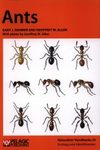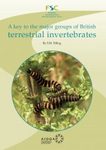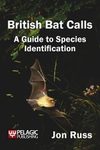Field / Identification Guide Handbook / Manual Identification Key
By: Charles Philip Wheater(Author), Penny A Cook(Author), Jo Wright(Illustrator)
128 pages, 4 plates with colour illustrations; 111 b/w illustrations
![Studying Invertebrates Studying Invertebrates]()
Click to have a closer look
About this book
Contents
Customer reviews
Biography
Related titles
Recommended titles
About this book
Studying Invertebrates is a comprehensive guide to designing and carrying out ecological investigations, especially those involving sampling invertebrates. A highly practical guide to fieldwork, statistical testing and interpretation. The book introduces ways of designing and analysing experiments so that complex situations can be described and summarised, comparisons made, and interactions between organisms and their environment examined objectively.
Contents
Editors’ preface, dedication and acknowledgements.
Designing an investigation: Designing and setting up experiments and surveys; Types of data; Sampling strategies; Selecting independent data points; Asking questions.
Sampling invertebrates: Conducting fieldwork responsibly and safely; Surveying vegetation; Measuring environmental variables; Monitoring substrates such as sand and soil; Monitoring water; Measuring physical attributes of a habitat; Sampling invertebrates from water; Sampling invertebrates from substrates; Sampling invertebrates from rocky shores; Sampling surface active invertebrates; Sampling invertebrates living in and on plants; Sampling aerial insects; Marking invertebrates; Keeping live invertebrates; Killing and preserving invertebrates.
Identifying invertebrates: Marine invertebrates; Freshwater invertebrates; Terrestrial invertebrates.
Describing data: Examining frequencies; Finding the average value; Examining variation; Estimating the reliability of the sample mean; Estimating population sizes and densities; Identifying clumped, regular and random distributions; Examining similarities between communities.
Statistical testing: Choosing a statistical test; Testing for differences between samples; Testing for relationships between variables; Testing for associations between frequency distributions.
Presenting your results: Creating tables and graphs; Writing up work.
Some useful addresses; Appendix I Calculating statistics; Mathematical glossary; II Statistical tables; References and further reading; Index.
Customer Reviews
Biography
Philip Wheater is Dean of Faculty in the School of Science and the Environment, Manchester Metropolitan University. His interests include: ecology and management of human-influenced environments, especially urban systems; invertebrate conservation and management; access to, provision and assessment of environmental education; environmental monitoring, especially fieldwork and the use of statistics.
Penny Cook gained her PhD from the University of Liverpool (1996) and then took a Royal Society funded fellowship in Stockholm University. She joined Liverpool John Moores University’s Centre for Public Health in 1998 as a research fellow and was made Reader in Public Health Epidemiology in 2007. Penny joined the University of Salford in June 2012 and was made Professor in 2013.



















































